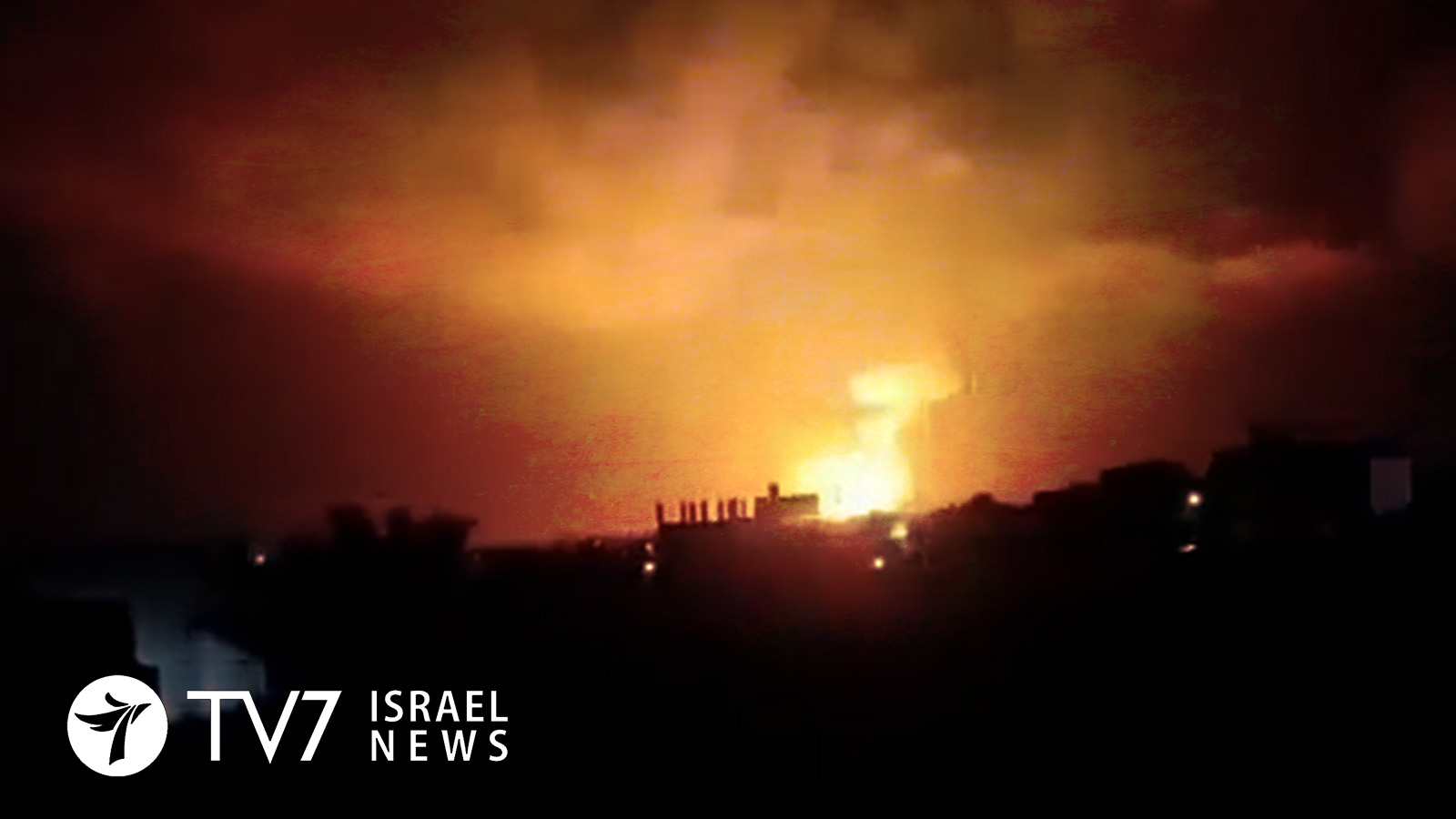Unidentified aircraft launched a salvo of missiles towards the southern outskirts of the Syrian capital Damascus, causing extensive damage to a number of installations said to belong to Iran.
Syria’s aerial defense array was activated about 10:15 PM last night in response to incoming projectiles reportedly fired from the direction of Israel’s Golan Heights region. A Syrian Armed Forces (SAF) official cited by the state-owned SANA news agency claimed that most of the incoming missiles were “shot down.”
Sources on the ground contradicted those statements, confirming to TV7 that several facilities near the town of Sayyidah Zaynab sustained a number of direct strikes. The area, just west of the Damascus International Airport, is a known stronghold of the Quds Force of Iran’s Islamic Revolutionary Guards Corps (IRGC) and its aligned Shi’ite militias. Regional intelligence sources say the Iranian proxy also operate numerous underground bases in the vicinity.
This corresponds with accounts of Syria military defectors, who have reported that Iran has built underground tunnels and spread decoys to help mitigate the impact of repeated Israeli strikes on its elaborate military infrastructure in the country.
The regime of Syrian President Bashar al-Assad has never publicly confirmed the presence of Iranian forces fighting on his behalf in the country’s civil war, saying only that military advisors have been deployed from Tehran. The authoritarian ruler has been helped by thousands of Shi’ite militias from Afghanistan to Lebanon to combat government forces survive the widespread armed insurgency that sprang from a violent crackdown on pro-democracy protests in 2011.
Despite Syrian allegations of responsibility for the latest attacks, the IDF Spokesperson’s Unit neither denied nor confirmed involvement in response to TV7’s request for comment.
Israel has regularly attacked what it identifies as Iranian-linked assets in Syria in recent years, and stepped up such strikes this year in what Western intelligence sources describe as a shadow war to reduce Iran’s influence. Major attacks since the start of 2021 include Iranian-affiliated strongholds further east near the Iraqi border. The sources commented that the Israeli strikes have succeeded in undermining the Islamic Republic’s extensive military power in the Arab country without triggering a significant increase in hostilities.
This past Friday, Israeli Alternate Premier and Defense Minister Benny Gantz acknowledged that “almost weekly” action is undertaken by the IDF to prevent Iranian entrenchment in Syria. IDF Chief of Staff Lt. Gen. Aviv Kochavi said in December that the Israeli military struck over 500 targets in 2020.
In related developments, the Ayatollah regime in Tehran condemned air strikes on its proxy militias in Syria by the United States military on 26 February.
Washington said the attacks on the Iran-backed Kata’ib Hezbollah paramilitary group along the Iraq border were in response to the rocket attacks on US assets in Iraq by Iran-backed groups. Tehran has denied the allegations.
Iranian Foreign Minister Mohammad Javad Zarif called the US retaliation “illegal and a violation of Syria’s sovereignty” in a meeting with his visiting Iraqi counterpart Fuad Hussein, according to state media reports. He also speculated that some of the attacks “could be designed to disrupt Iran-Iraq relations and Iraq’s security and stability,” and called on Baghdad to “find the perpetrators.”
Hussein is in Iran “to discuss regional developments, including ways to balance relations and avoid tension and escalation” with Iranian officials, according to a statement issued by the Iraqi Foreign Ministry.
The top Iraqi diplomat was cited as saying that his country would facilitate Iran’s access to about $6 billion in its funds in Iraq that had been frozen due to US sanctions.
Gen. Ali Shamkhani, who leads the Supreme National Security Council of Iran, said Friday’s US air strikes encouraged terrorism in the region.
